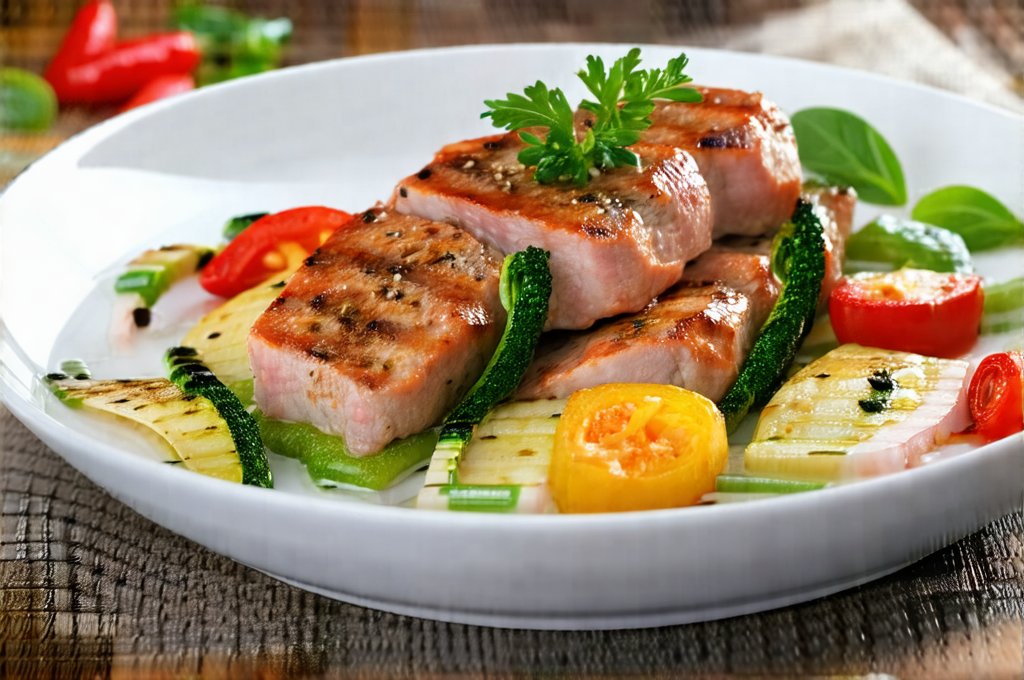Gastroesophageal reflux disease (GERD) impacts millions, often leading to discomforting symptoms like heartburn, regurgitation, and even difficulty swallowing. While medication is frequently employed to manage GERD, dietary choices and how we prepare our food play a surprisingly significant role in mitigating symptoms. Many individuals find that altering cooking methods can offer substantial relief alongside other management strategies. Understanding the relationship between different culinary techniques and acid reflux is crucial for those seeking to enjoy meals without triggering unpleasant reactions. It’s not always about eliminating foods entirely, but rather adapting how we prepare them to make them more GERD-friendly.
The goal isn’t deprivation; it’s smart cooking. High-fat foods are well-known triggers, but even healthy items can contribute if prepared in ways that exacerbate reflux. For instance, fried foods stay in the stomach longer, increasing pressure and the likelihood of acid creeping up the esophagus. Similarly, certain spices, while flavorful, can relax the lower esophageal sphincter (LES), allowing stomach acid to escape. This article will delve into cooking methods that minimize these triggers, promoting easier digestion and reduced reflux episodes. We’ll focus on techniques that preserve nutritional value while being gentle on sensitive digestive systems, offering practical strategies for a more comfortable eating experience. Considering your overall diet is also important – review the best diet options to support your gut health.
Gentle Cooking Methods
The cornerstone of GERD-friendly cooking revolves around minimizing fat content and avoiding ingredients known to relax the LES. Steaming, poaching, grilling (with limitations), and baking are excellent starting points. These methods generally require less added fat than frying or sautéing in excessive oil. The key is to prioritize simplicity and freshness. – Use lean protein sources like chicken breast, fish, or tofu. – Incorporate plenty of non-citrus fruits and vegetables. – Season with mild herbs and spices instead of strong ones.
Steaming is arguably the most gentle method because it doesn’t require any added fat at all. Vegetables retain maximum nutrients, and food remains light and easy to digest. Poaching shares similar benefits; gently simmering food in liquid keeps it moist without adding extra grease. Baking allows for flavor development without needing excessive oil, especially when using parchment paper to prevent sticking. It’s important to remember that even with these methods, portion control is vital. Overeating, regardless of how the food is prepared, can increase stomach pressure and trigger reflux. Consider finding the right pace for eating to aid digestion as well.
Grilling can be a good option, but it introduces potential complications. While grilling doesn’t inherently add fat, charring food creates compounds that may irritate some individuals with GERD. If you choose to grill, keep cooking times short to minimize charring and avoid excessive seasoning with spicy marinades. Ultimately, the best approach is experimentation; each person reacts differently to various foods and preparation methods, so paying attention to your body’s response is crucial. Staying active also helps – explore these exercise tips for managing GERD.
Minimizing Fat Intake During Cooking
Fat slows down digestion and increases stomach pressure—two major contributors to GERD symptoms. Reducing fat isn’t about eliminating it entirely, but rather making conscious choices during food preparation. Here are some strategies: – Choose lean cuts of meat and trim visible fat before cooking. – Opt for low-fat or non-fat dairy alternatives. – Use cooking sprays instead of pouring oil directly into the pan. – When sautéing, use a small amount of healthy oil like olive oil sparingly.
Beyond reducing overall fat content, consider how you incorporate fats. Instead of frying, try roasting vegetables with a light spritz of olive oil spray. This provides some flavor and texture without the heavy grease associated with deep-frying. Similarly, when making sauces, use yogurt or pureed vegetables as a base instead of cream or butter. These substitutions maintain richness while significantly reducing fat levels. Another helpful technique is to drain off excess fat after cooking meat, using paper towels or a slotted spoon. Consider best cooking oils for sensitive digestion.
The type of fat also matters. While all fats should be consumed in moderation, unsaturated fats (like those found in olive oil and avocados) are generally easier to digest than saturated and trans fats. Focusing on healthy fat sources can minimize digestive discomfort. Finally, remember that many processed foods contain hidden fats—reading labels carefully is essential for making informed choices.
Spice Selection & Acidic Ingredients
Certain spices and acidic ingredients are notorious GERD triggers because they can relax the LES or directly irritate the esophageal lining. While individual sensitivities vary greatly, it’s wise to be mindful of these potential culprits. – Avoid or limit: garlic, onions, mint, chocolate, chili peppers, tomatoes, citrus fruits (lemons, oranges, grapefruit). – Opt for milder seasonings like basil, oregano, thyme, and ginger.
The key isn’t necessarily avoidance but moderation. A small amount of tomato sauce might not bother some people, while others experience significant reflux. Pay attention to your body’s signals and adjust accordingly. When using spices, start with a minimal amount and gradually increase if tolerated. Similarly, if you enjoy citrus fruits, try consuming them in smaller portions or pairing them with other foods that can help neutralize stomach acid. If allergies are also a concern, check if coconut is safe for you.
Cooking methods can also influence how spices affect GERD. For instance, simmering tomatoes for an extended period may reduce their acidity. Furthermore, incorporating alkaline foods—like bananas, melons, and green leafy vegetables—into your diet can help balance the acidity of meals. It’s important to note that dietary triggers are highly individual; what bothers one person might not affect another. Keeping a food diary to track symptoms and identify personal sensitivities is an invaluable tool for managing GERD through dietary modifications.
Food Combinations & Meal Timing
The way we combine foods and when we eat can significantly impact reflux. Large, heavy meals put increased pressure on the stomach, increasing the risk of acid escaping into the esophagus. Eating late at night also poses a problem because gravity isn’t working to keep stomach contents down while lying flat. – Eat smaller, more frequent meals throughout the day. – Avoid eating within 2-3 hours of bedtime. – Combine foods thoughtfully; avoid pairing high-fat foods with acidic ones.
Focusing on mindful eating—slowing down and savoring each bite—can also aid digestion. Chewing food thoroughly breaks it down, making it easier for the stomach to process. Combining easily digestible carbohydrates (like rice or potatoes) with lean protein and non-acidic vegetables is generally well-tolerated. Conversely, pairing a fatty burger with a large serving of tomato sauce is more likely to trigger reflux.
Meal timing is equally important. Allow sufficient time for digestion before lying down. If you frequently experience nighttime heartburn, elevate the head of your bed by 6-8 inches using blocks or a wedge pillow. This helps gravity keep stomach acid where it belongs. Ultimately, managing GERD requires a holistic approach that combines dietary adjustments with lifestyle modifications and, if necessary, medical intervention. It’s about finding what works best for you through careful observation and experimentation. Practicing compassion practices can also help you navigate the challenges of chronic gut issues. And don’t forget the benefits of morning smoothies.


















